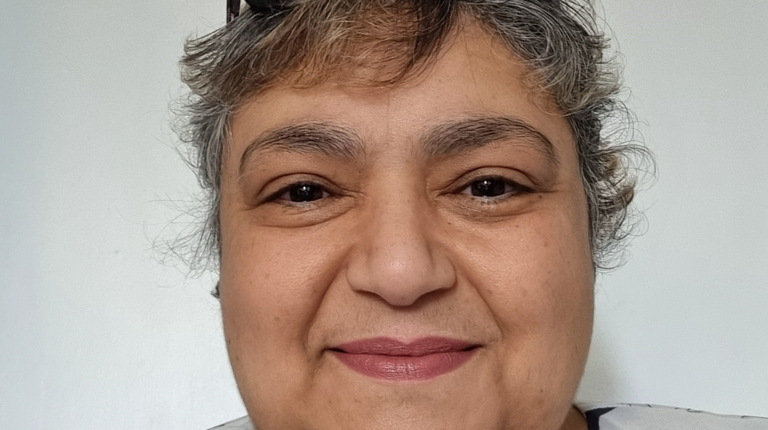Having chosen to be a SAS doctor for the last 15 years, Dr Eman Toeima has undertaken a huge variety of extended roles that have enabled her to develop her career as a SAS doctor.
From local roles at her trust, to now being the Chair of the RCOG SAS and LED Committee, Eman shows the range of opportunities that a SAS career can offer.

"[Working as a SAS doctor] is a very fulfilling career; you will never regret it."
With 30 years' experience in the specialty of obstetrics and gynaecology (O&G), Dr Eman Toeima has built up an extensive portfolio working in numerous countries including Qatar, Dubai, Saudi Arabia, Egypt and Canada. After moving to the UK and trying to juggle the work-life balance as a registrar, Eman made the choice in 2008 to pursue a SAS career to provide stability for her family.
"I was presented with the opportunity [of taking up a SAS post], and when I looked into the terms and conditions, they were very much similar to the consultants' terms and conditions … I felt that this is an opportunity that I should grab."
Having now worked as a SAS doctor for 15 years, Eman discussed how the role of a SAS doctor has provided her with opportunities for career development and training in specialist areas. Notably, Eman highlighted that being able to train in one’s own time is a "massive advantage" of being a SAS doctor. Wanting her training to be recognised, Eman decided to pursue the Certificate of Eligibility for Specialist Registration (CESR).
Reflecting on the years while working towards the CESR, Eman noted that they were not without sacrifices. During this time, Eman moved around the UK to gain the exposure she needed, sometimes giving up annual leave to attend theatre lists that would support her training aspirations. However, Eman shared that these sacrifices were worth it for the satisfaction of being able to progress her career.
"I work as an independent practitioner. I work very autonomously. I have my own clinics. I used to have my own theatre lists."
It was after achieving the CESR in 2015 that Eman began working in a number of voluntary posts, including Secretary for the British Society for Study of Vulval Diseases (BSSVD), and Deputy Senior Equivalence Advisor of the RCOG Equivalence Advisory Group. Within the last year Eman has chaired a successful session on vulval diseases at the annual RCOG Congress alongside the President of the American College for Obstetricians and Gynaecologists, as well as taking up the post of Differential Attainment Champion. Eman is also the secretary for the Disability Awareness Network for her trust and is herself a doctor working with a registered disability.
"Everywhere I worked I really learned a lot; not only clinically, but professionally as well. You then reach the stage where you would like to use what you've learned. So I started working voluntarily for the BSSVD and the College in several posts."
As the RCOG SAS and LED lead, Eman chairs the RCOG SAS and LED Committee and is enthusiastic about ensuring that LEDs are supported to achieve their career aspirations, as well as championing the successes of SAS doctors. The contracts are different for SAS and LEDs, most notably that LED contracts do not have nationally agreed terms and conditions and are usually non-permanent posts, and it is important that this diverse group of doctors are not forgotten.
"In all specialties, if we don't look after [SAS and LEDs], if we don't support them, if we don't make sure they progress and develop, we are not doing any good for the women we serve and look after."
Importantly, Eman highlighted that the SAS workforce is diverse. These doctors have different backgrounds, different training and different levels of experience. While some doctors may be in their first year as a SAS doctor, others may have been SAS doctors for twenty years or more. Alongside this range in experience, doctors will also choose SAS careers for a variety of reasons. These may include stability (both personal and professional), to access opportunities for further training in their special interest, to work autonomously in a specialist area, to pursue specialist registration via the CESR route, or to develop through leadership and/or educational roles. In addition, Eman discussed the new specialist contracts as another way for senior SAS doctors to progress. This demonstrates that the SAS career pathway enables this diversity and experience to be acknowledged and for individuals to meet their career aspirations, whatever they may be.
"[Specialist roles are] going to be a huge opportunity for development and career progression for SAS doctors because we've already got the tools … to be there and take up more senior roles in service and in professional areas. For example in education, research [and] leadership."
As evidenced by Eman’s experiences, there are many opportunities available to SAS doctors to develop through extended roles. If you are a SAS doctor looking for ways to develop further, you may want to consider:
- Departmental leadership roles, e.g. audit, guidelines, risk management
- Local research roles, e.g. principal investigator
- Educational roles, e.g. educational supervisor, clinical supervisor, mentor, SAS tutor, local appraiser
- RCOG roles, e.g. Committee roles, RCOG examiner
Ensure your clinical director and other senior colleagues are aware that you are keen to develop your role.
"[There are] a lot of opportunities to involve SAS and LED doctors. Don't just use them for service. They have a lot more than that to offer."
While further steps need to be taken cross-specialty, a number of recent reports have acknowledged the vital role of SAS doctors in the medical workforce. This includes the NHS Medical Workforce Race Equality Standard (MWRES) report (2023) which includes a commitment to parity for SAS doctors. In domain five the report sets out aims to understand the needs of the SAS workforce and to subsequently provide better support to meet these. In addition, Eman expressed that aspiring SAS doctors should draw upon their existing support networks such as friends, family, colleagues and professional bodies, including the RCOG.
"The last few years have been cornerstones in the lives of SAS and LE doctors for the amount of support we've seen from the College."


RCOG Membership
We work to support obstetricians and gynaecologists at a local, national, and international level in our mission to improve the health of women and girls. Find out how you can become part of our membership and the benefits that come with it.
